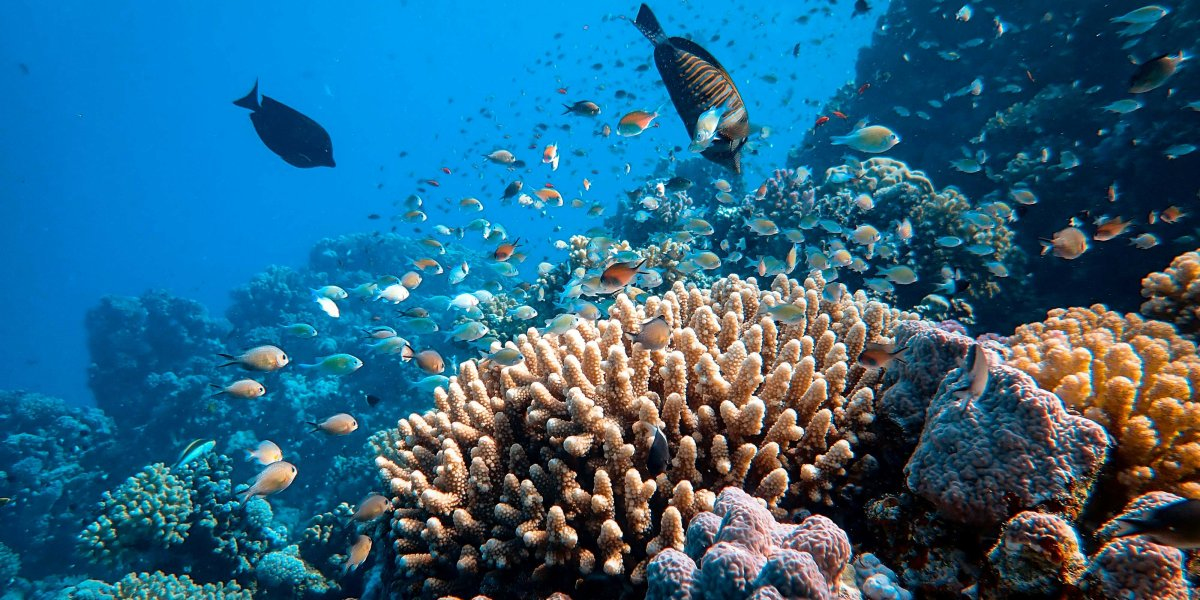Photo Francesco Ungaro by Unsplash
New report confirms world reaches first climate tipping point
Widespread mortality of warm-water coral reefs is under way, according to the 2025 Global Tipping Points Report released today. Relying on temperature overshoot — when global temperature rise temporarily exceeds and then returns to or below 1.5°C — increases the risk of reaching additional tipping points.
The world is on the brink of several tipping points, with devastating risks for people and nature, including the irreversible melting of polar ice sheets, the collapse of key ocean currents and the dieback of the Amazon rainforest, according to the landmark Global Tipping Points Report 2025 that was released today 13 October by the University of Exeter and international partners.
The report brings together the work of 160 leading scientists from 87 institutions in 23 countries and offers the most up-to-date assessment yet of where we stand relative to Earth’s critical climate and ecological thresholds.
Overshooting 1.5°C of global warming raises the risk of triggering irreversible tipping events, with each increment of warming and delay in climate mitigation adding to the risk.
Minimising overshoot of 1.5°C is essential to prevent climate tipping points
CICERO Senior Researcher Norman J. Steinert contributed to the report’s chapter on implications of overshooting 1.5°C for climate tipping points. This is important because limiting the magnitude and duration of a temperature overshoot can play a crucial role in avoiding the tipping of systems.
“Overshooting 1.5°C of global warming raises the risk of triggering irreversible tipping events, with each increment of warming and delay in climate mitigation adding to the risk. Most tipping systems are expected to amplify warming, making it more difficult to further limit or reverse warming. Hence, every fraction of a degree and every year spent above 1.5°C matters,” said Steinert.
“The most efficient, least risky, most cost-effective way to limit this warming is the rapid reduction in anthropogenic emissions. Positive tipping points which are self-reinforcing changes in technology, policies and human behaviors also offer hope for rapid and timely transformative change,” said Steinert.
Widespread dieback of warm-water coral reefs taking place
The second Global Tipping Points Report finds that warm-water coral reefs – on which nearly a billion people and a quarter of all marine life depend – are passing their tipping point. Widespread dieback is taking place and – unless global warming is reversed – extensive reefs as we know them will be lost.
Polar ice sheets are approaching tipping points, committing the world to several meters of irreversible sea-level rise that will affect hundreds of millions of people. Every fraction of additional warming increases the risk of triggering further damaging tipping points. These include a collapse of the Atlantic Meridional Overturning Circulation (AMOC) that would radically undermine global food and water security and plunge northwest Europe into prolonged severe winters. Together, climate change and deforestation put the Amazon rainforest at risk of widespread dieback below 2°C global warming, threatening incalculable damage to biodiversity and impacting over 100 million people who depend on the forest.
“We are rapidly approaching multiple Earth system tipping points that could transform our world, with devastating consequences for people and nature. This demands immediate, unprecedented action from leaders at COP30 and policymakers worldwide, “ said Professor Tim Lenton, from the Global Systems Institute at the University of Exeter who led the work with the report in a press release.
Positive tipping points of self-propelling change
The Global Tipping Points Report 2025 also highlights actions to activate so-called positive tipping points of self-propelling change across sectors and economies including investing in clean technologies, phasing out fossil fuels and mobilizing finance and trade towards clean energy systems.
“In the two years since the first Global Tipping Points Report, there has been a radical global acceleration in some areas, including the uptake of solar power and electric vehicles. But we need to do more – and move faster – to seize positive tipping point opportunities. By doing so, we can drastically cut greenhouse gas emissions and tip the world away from catastrophic tipping points and towards a thriving, sustainable future,” said Lenton.
What are climate tipping points?
Climate tipping points are thresholds in the Earth system where small changes, like incremental climate warming, can trigger self-amplifying and potentially irreversible shifts in components such as ice sheets, forests, or ocean circulation. Crossing them can amplify global warming and destabilize the climate, leading to cascading and long-lasting impacts.
